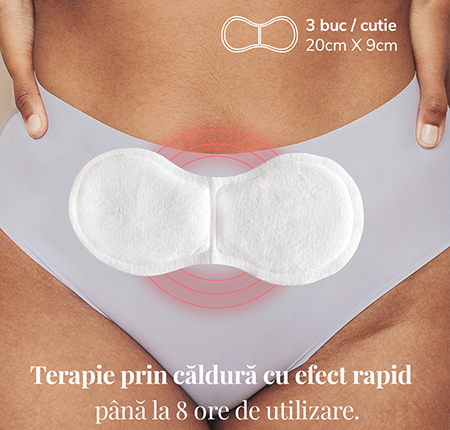
A retroverted uterus is one way the uterus can be positioned in the female anatomy. Even though 80% of women have it in an anteverted (face-facing) position, a retroverted uterus is not a condition, it is not a disease, and it is not a cause for concern when you do not have any other genital condition. What exactly does that mean? Read our article!
Uterus in Retroversion - What it means and how it can affect us
About 20% of women have a retroverted uterus. But studies show that a retroverted uterus has no effect on your fertility, so it's not a cause for concern. Besides, it is not a disease. But why does this happen?
About 20% of women have a retroverted uterus. But studies show that a retroverted uterus has no effect on your fertility, so it's not a cause for concern. Besides, it is not a disease. But why does this happen?
Some of the causes of retroverted uterus include:
- Natural variation - the uterus generally tilts forward as a woman matures. But sometimes, this does not happen and the uterus remains tilted back.
- Adhesions - an adhesion is a band of tissue joining two (usually) separate anatomical surfaces. Pelvic surgeries can move the uterus into a retroverted position.
- Endometriosis - or the growth of endometrial cells outside the uterus. Excess cells can cause retroversion by "sticking" the uterus to other pelvic structures.
- Fibroids - these small, non-cancerous lumps can cause the uterus to retrograde.
- Pregnancy - can overstress the ligaments and allow the uterus to tip backwards. In most cases, the uterus returns to its normal position after birth, but this is not a rule.
Types of Uterus according to position
image that exemplifies them all
The uterus is an inverted pear-shaped cavity organ located above the vagina, slightly tilted forward, above the urinary bladder. Just as every woman is unique, the position of her uterus can be many ways.
Anteverted uterus (usual position)
When it is in a position slightly tilted forward, this position is considered to be normal - or rather, the most common and most common - and is called the anteverse position.
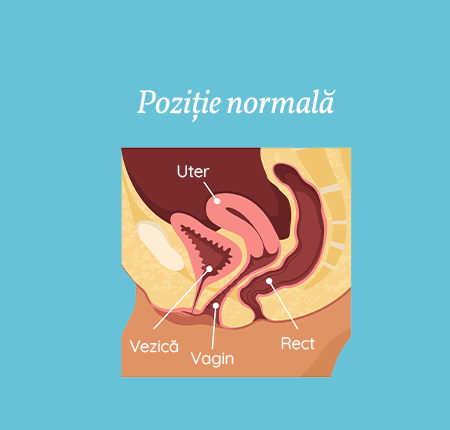
Retroverted uterus
But sometimes it can happen that the position of the uterus is oriented slightly posteriorly (toward the back), and in this case we are talking about retroversion - or retroverse uterus. About a quarter of women have this position of the uterus.
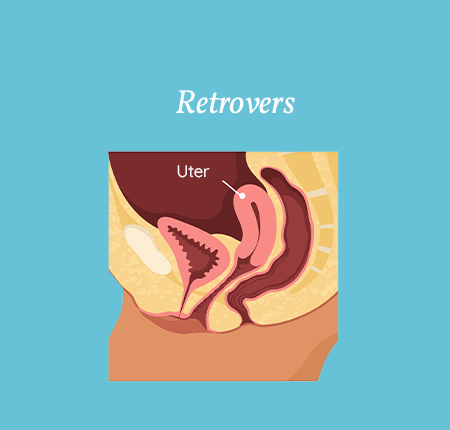
Retroflexed uterus
On the other hand, a retroflexed uterus is a uterus that faces backwards and is bent, forming an acute angle flexure.
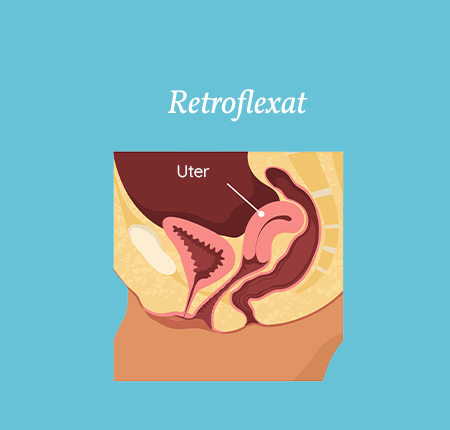
Retroverted uterus in pregnancy
The fact that a woman has a retroverted uterus does not mean that it affects her pregnancy!
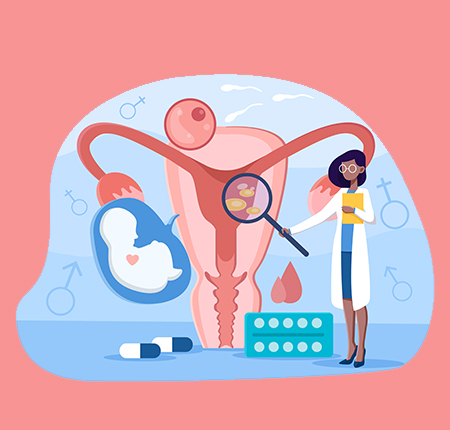
Are there certain positions to get pregnant with a retroverted uterus?
Because a retroverted uterus does not affect your chances of conceiving. But if you have a condition such as endometriosis, pelvic inflammatory disease or uterine fibroids - the latter can cause infertility or a decrease in fertility, so it is good to consult a doctor if you have worrying symptoms and suspect a condition.
In pregnancy, the retroverted uterus can put more pressure on the bladder, which can cause incontinence in the first few months and can sometimes cause back pain. But the retroverted uterus is often not visible on ultrasound during pregnancy, until it increases in volume - along with the development of the fetus.
And if you want to conceive, you can use any position during sex , because it does not influence the result if you have a retroverted uterus.
Menstruation with retroverted uterus
You may have asked yourself, "does a retroverted uterus have any effect on my period?" The vast majority of people with a retroverted uterus have no problem with their menstrual cycle. Despite this, there are some women who may experience severe cramping or lower back pain before and during menstruation due to the position of the uterus.
If you face abdominal pain and menstrual cramps and want to get rid of pills, we recommend a natural way to get rid of the pain, with ENROUSH natural thermal patches.
Retroverted uterus - Sex life & Fertility
In women with a retroverted uterus, the cervix is oriented anteriorly. Some specialists say that if you want to conceive, it is recommended to keep a lying position, with the legs higher than the rest of the body, to facilitate the access of the sperm to the uterine cavity. But this is not a rule, it is only a recommendation, because it is not impossible to get pregnant if you have a retroverted uterus - from any position. Sometimes, however, it can be more difficult.
Retroverted uterus - Symptoms
As a rule, a retroverted uterus does not cause symptoms. You won't feel any different than a woman with an anteverted uterus. Moreover, some women find out that they have a retroverted uterus only after an abdominal ultrasound! Because it doesn't show signs, usually. But it is possible to have some symptoms, especially if you have other genital conditions. Common signs can be:
Pain during intercourse
Severe cramps during menstruation
Difficulty inserting a tampon
An increased urinary frequency
Sensation of pressure on the bladder
Urinary tract infections
Mild incontinence
Retroverted uterus - Causes
A retroverted uterus is not a condition. In fact, it's a variation of the anatomy that many women are born with or acquire as they mature. The causes can also be genetic!
But for some people, a retroverted uterus can occur due to medical conditions and conditions such as:
Endometriosis. Endometrial scar tissue or adhesions can cause the uterus to remain retrograde.
Fibroids. Uterine fibroids can cause the uterus to become stuck or misshapen, or to tilt backwards.
Pelvic inflammatory disease. When left untreated, it can cause scarring, which can have a similar effect to endometriosis.
History of pelvic surgery. Pelvic surgeries can also cause scarring.
Chronic infections
Menopause , by weakening the ligaments that support the uterus
Previous pregnancy history. In some cases, the ligaments that hold the uterus in place become too stretched during pregnancy and stay that way. This can allow the uterus
Diagnosis of retroverted uterus
Your doctor can diagnose a retroverted uterus during a routine exam. And this can also happen when you are pregnant: following an ultrasound, your gynecologist will diagnose the exact position of the uterus.
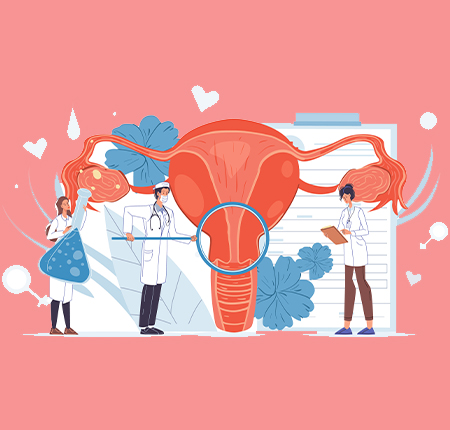
And if you have symptoms that worry you, don't hesitate to discuss them with your doctor!
Retroverted uterus - Treatment
Because in terms of treatment – a twisted uterus is not a condition, so it does not require treatment. But if you have other conditions - such as endometriosis - then treatment and doctor's recommendations will be options to relieve the symptoms of this condition.
Don't forget: you can prevent hormonal imbalances, allergies and infections of the intimate area by changing your menstrual care routine: always choose menstrual products that you know do not contain toxins or chemicals !
